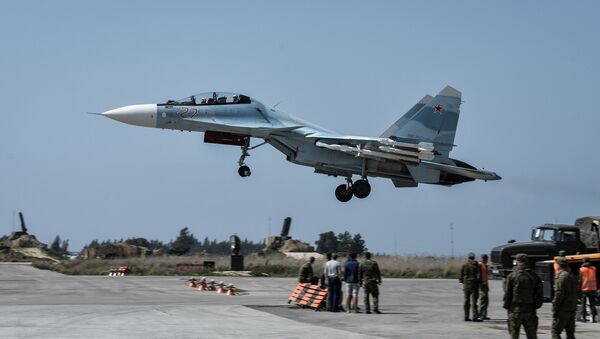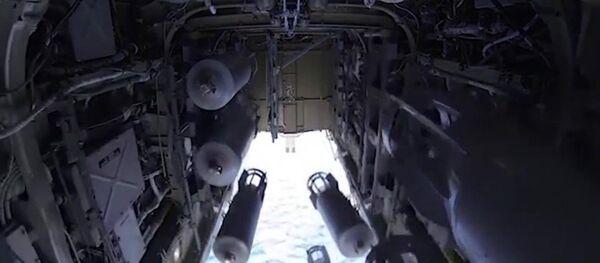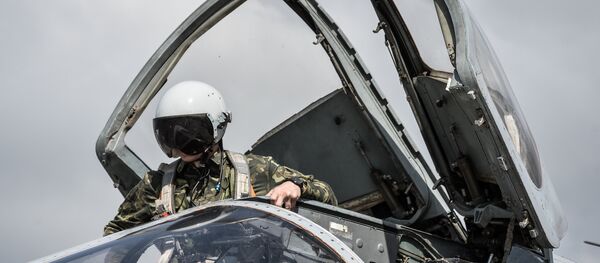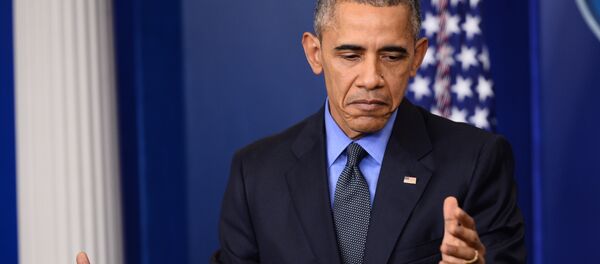Sputnik sat down to compare the versions put forward by the Russian and foreign media and found out that they actually have very much in common.
No More Talk About “Assad must Go”
One of the most popular versions shared by both sides is that Russia has accomplished its major objective: providing assistance to President Assad.
Six months after the launch of the Russian air campaign in Syria, no one is talking about how Assad is about to fall. The Syrian government forces and their various militia allies have regained the initiative on the battlefield, taking back key villages that strengthen their ability to maintain control of the territory.
“Now, despite the use of face-saving rhetoric, the various participants in the Syrian political process have come to accept that Assad has a certain degree of staying power. In pulling this off, Putin again demonstrated that the Kremlin will be loyal to its friends and partners —and that it has the capability to marry military and political objectives in a successful limited campaign,” suggests The National Interest.
Weakening of Daesh and Other Rebel Groups
Russian military experts say that with such a situation on the ground, there is simply no need for the presence of such a sizable contingent of Russian Aerospace Forces.
There is no more need for SU-34 strike fighters and SU-35 multirole fighters to support the ground operations. However, Russia's S-400 and Pantsir-S1 advanced surface-to-air missile defense systems will remain in use.
The Russian analytical website Expert Online suggests that the “main part of Russia’s group in Syria” will be replaced with some other Russian coalition partner – Iran or even China. Hence these countries could provide President Assad with financial and image support.
Linking actions in Syria to Other Issues
This view is somewhat echoed by Expert Online, which suggests that the partial pullout might be part of an agreement with the US.
“Rumors have emerged about a large deal, 'Syria in exchange for Ukraine,' which will see the US easing control over the Ukrainian regime, scaling down its financial support or forcing Petro Poroshenko to start implementing the Minsk agreement," says the website.
“Russia, in turn, will save the US from losing face in Syria and allow it to launch an offensive in the north of the country on Daesh capital Raqqa.”
The Most Conspiratorial Version
Some of the military experts suggest that Russia’s partial withdrawal will allow it to forestall a joint US-Saudi-Turkish intervention in Syria.
Dmitry Abzalov, President of the Center for Strategic Communications explains that Russian pullout diminishes the chances of the agressive supporters of the military campaign for the invasion.
“Turkey is being stripped of some very serious arguments and its actions on the territory of the northern Syria, and I would like to remind that Turkey has moved its troops into the territory of the northern Syria and is regularly striking the positions of the Syrian Kurds, these actions already look like an unmotivated act of aggression. Hence it is a very serious blow to the aggressive supporters of the military campaign, among which is Turkey. And it is a very serious blow to Erdogan personally.”
The website, however, admits that this version is highly unlikely as through the recent years, Russia has demonstrated that it stands firm in the face of international pressure, does not automatically respond to provocations or other ultimatums, and plays more skillfully and with more foresight.
And the current Russian pullout comes only as confirmation of the above.
Other Popular Versions
Among other popular versions are: an attempt to avoid the Soviet Union's fate of committing itself to a nine-year invasion of Afghanistan, a demonstration that Russian support is not limitless, President Putin’s frustration with President Assad and the demonstration and testing of Russia’s armed forces, which are undergoing significant modernization.
Expert Online puts forward yet another version, that there is an agreement between Russia and US about a broader coalition to pursue the peace process, while excluding the interests of Turkey and Saudi Arabia as well as Bashar Assad.
After the announcement of such a coalition, Russia will return to Syria but as a major US partner in the fight against Daesh.






